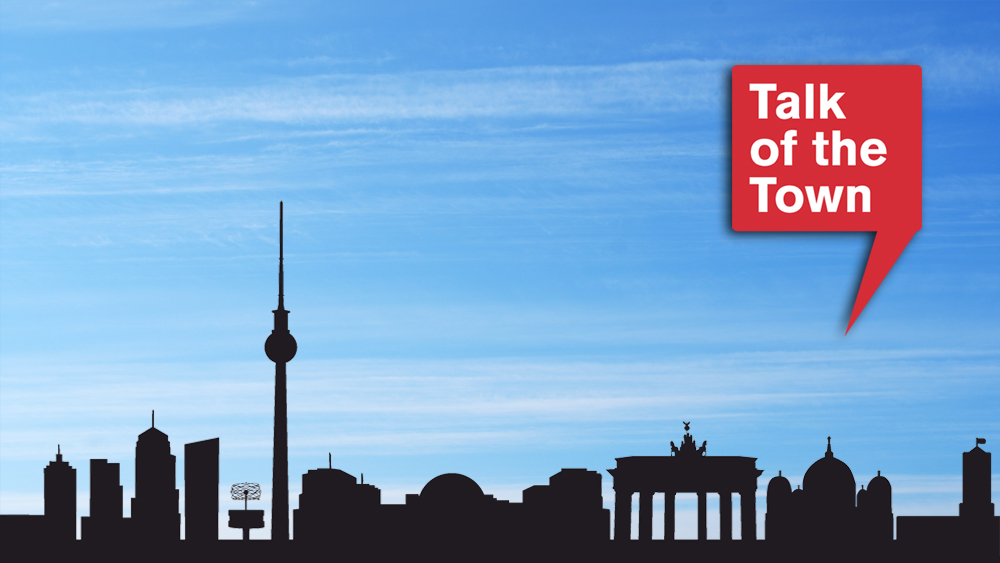The big story in Germany was the so-called “Panama Papers,” records of the Panamanian company Mossack Fonseca originally leaked to Süddeutsche Zeitung. Elsewhere, German Defense Minister Ursula von der Leyen further defined Germany’s role in Mali, and party leaders struggled with restive colleagues.
Paper Trail
Since the release of the so-called “Panama Papers”, German politicians have been rushing to assign blame and suggest future reforms. The Greens’ parliamentary leader Katrin Göring-Eckardt held the federal government responsible, saying it blocked efforts to improve control over financial service providers in Europe. She called for official international registers listing the beneficiaries of individual businesses. Germany’s Minister of Justice Heiko Maas, from Chancellor Angela Merkel’s Social Democrat (SPD) coalition partner, declared that “the secrecy must come to an end,” and claimed adjustments of the money laundering act would improve transparency in the financial sector. SPD finance expert Joachim Poß suggested that a standard fee should be introduced for banks that are involved in “non-transparent” business transactions.
Some reactions were more flippant: “I cannot understand what #Putin needs money for,” tweeted DIE ZEIT Deputy Editor Bernd Ulrich.
It remains unclear, however, whether and in how many cases the leaks revealed business transactions that are actually illegal according to current law.
Mali Mission
Minister of Defense Ursula von der Leyen said the German military will not become involved in UN military action against terrorists in Mali, which has been underway since 2013. Upon her arrival in the capital city of Bamako she declared this to be the responsibility of the French operation “Barkhane”. German soldiers will, however, remain involved in the UN and EU missions to stabilize the region, support the political process, and protect civilians.
This remains a highly difficult and dangerous task, particularly in the North of the country – more than 70 UN soldiers have been killed so far. This round of violence began in January 2012, when armed groups in the North, some of them former combatants in Libya, began attacking government forces; these government forces, in turn, staged a coup in March, suspending the constitution and installing a military regime. With the help of the Economic Community of West African States, a national unity government was installed in August. The United Nations has been working to build the government’s capacities during this transition.
Berlin has beefed up its assistance to France in Mali in the wake of last November’s terror attacks on Paris in order to facilitate the French government’s intensified fighting the so-called Islamic State (IS) in Syria.
Sibling Rivalry
Horst Seehofer, head of the CDU’s Bavarian CSU sister party and perhaps the most vocal critic of Angela Merkel’s handling of the refugee crisis, is still unhappy with the German chancellor. He holds the closing of the Balkan route responsible for the recent decrease in arrivals, not any policy of Merkel’s, and reacted poorly to Interior Minister Thomas de Maizière’s suggestion that border controls could be done away with once more in the foreseeable future. “Despite being the state most affected, we were not consulted or informed,” he grumbled, describing de Maizière (and, by implication, the chancellor), as “high-handed”.
Seehofer has been a frequent thorn in Merkel’s side since the beginning of the refugee crisis, maintaining what has been called a “parallel foreign policy” with outspoken critics of the chancellor, including Hungarian Prime Minister Viktor Orban and Russian President Vladimir Putin. He lags her significantly in polls, however, holding a 52 percent disapproval rating compared to 56 percent who approve of the job Merkel is doing.
Trouble at the Top
Frauke Petry, head of the Alternative für Deutschland party and the right-wing populists’ public face, seems to be increasingly isolated from her colleagues: she is hard to find on her party’s website, and has been involved in public fights with other party leaders. AfD members blame her go-it-alone style, saying she has become increasingly egocentric. That being said, the AfD was still riding (relatively) high in last week’s polls, with 14 percent of the vote.
http://www.spiegel.de/politik/deutschland/afd-frauke-petry-ist-zunehmend-isoliert-a-1085534.html







